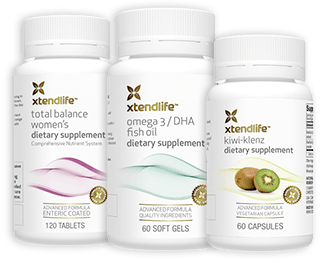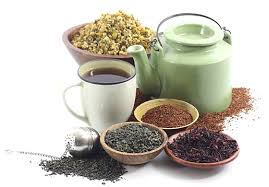5 Vitamins You Need Right Now
We need lots of different vitamins in order to be healthy and have a great sense of well-being. If you’re like most people, you take a multi-vitamin every day. You probably also eat or drink some vitamin-fortified foods. But even if you do those things, there are still some that you may be missing out on.
Many people fail to get enough of the five listed here in their daily diet, even if they take a multi-vitamin. The average multi-vitamin does not contain all of these. If you fail to get enough of just one of them, your health could suffer now or in the future. These are five that you just can’t do without.
Vitamin D
Vitamin D deficiency is now known to play a role in cardiovascular disease. The role played by insufficient vitamin D may actually be even more significant than the role of dietary fat or cholesterol. Excessive calcium combined with a lack of vitamin D poses a serious risk to the blood vessels. The vast majority of arterial plaque is calcium, not cholesterol.
Vitamin D acts as antioxidant and has anti-calcification and anti-inflammatory activity. Oxidation, calcification and inflammation all play a role in heart disease. Recent studies indicate that vitamin D supplementation may help to prevent arterial plaque by preventing the initial adhesion of calcium or cholesterol to the arterial walls.
People with type II diabetes are even more likely to be vitamin D deficient and more likely to have heart disease. Vitamin D deficiency coupled with diabetes is accompanied by a two-fold heart disease risk. Vitamin D supplementation has a proven beneficial effect on some of the other risk factors for heart disease in diabetic patients.
Vitamin D is essential for bone mineralization, calcium homeostasis and the bone building that goes on throughout a person’s life. Research has shown that most elderly people who have already suffered a fractured hip due to the degenerative bone disease osteoporosis have insufficient blood levels of vitamin D.
Vitamin D deficiency affects not only the elderly. It can also exist among young, active, healthy and athletic people, putting them at risk for bone injuries and prolonged recovery times. Research has shown that vitamin D supplementation is benefit for the young, as well as the old.
Additional benefits of vitamin D are seen in the areas of asthma control and lung function improvement. The nutrient has a protective benefit for the liver and increased intake could reduce the risk of certain kinds of cancer. In one study, low blood levels of vitamin D were associated with colorectal cancer risk.
Obviously, this is a supplement worth taking. Just be sure to choose a good supplement containing Vitamin D3, also called cholecalciferol. Other types of vitamin D are poorly absorbed and are not storable within the body. Taking a supplement that contains a different form of vitamin D is a waste of time and money.
Vitamin K
Vitamin K also plays a role in the prevention of osteoporosis and heart disease. It is one of the less well-known vitamins and is not included in most multi-vitamin supplements. Vitamin K2 (Menaquinone) is the most absorbable form.
Epidemiologic studies suggest a diet high in vitamin K is associated with a lower risk of hip fractures in aging men and women. Supplementation has been shown to improve bone formation and bone-building activity while reducing bone breakdown or “resorption”.
Studies indicate that the mechanisms causing calcification of the blood vessels and osteoporosis are similar. The relationship between the two health problems is sometimes referred to as the calcium paradox. There is a lack of calcium in the bones but the mineral is being stored in the vessel walls. Obviously, something has gone wrong when this happens.
Research indicates that Vitamin K2 deficiency (or insufficiency) could be the cause of the calcium paradox. The nutrient is responsible for the normal function of several proteins that are involved in the maintenance of bones, teeth and arterial walls. You might say that vitamin K2 tells the body where calcium should be deposited.
In addition to the benefits for preventing heart disease and osteoporosis, vitamin K2 may be a potential treatment for prostate cancer. In one study, the results show that the nutrient has natural anti-inflammatory activity. Inflammation plays a role in both heart disease and cancer. For many years, researchers have been encouraging increased intake of natural anti-inflammatories found in foods as a cancer preventative. Anti-inflammatory drugs provide no benefit for the inflammation involved in heart disease or cancer.
However, vitamin K2 is not readily available in foods. It is normally produced by bacteria. Because of modern cleanliness, we probably have reduced our access to the nutrient. That could explain, at least in part, why K2 deficiency is so common. A good supplement is the solution to the problem.
Beta-Carotene (Pro-vitamin A)
Beta-carotene is a carotenoid found in many plant foods. Carrots are a well-known source of the nutrient. In fact, carotenoids and carotene were named for the carrot. Your body uses beta-carotene to make vitamin A. This is why it is called “pro-vitamin A”. In excess, vitamin A or retinol through supplements or food sources can be toxic to the body. Beta-carotene is non-toxic. The body uses what it needs and discards the rest. While high intake of the animal form of vitamin A is associated with an increased risk of osteoporosis and hip fracture, high intake of carotenoids is associated with improved bone health.
Beta-carotene plays a role in the prevention of atherosclerosis (heart disease) progression and also in the prevention of cardio-metabolic diseases in obese people according to researchers. High intake of beta-carotene is associated with a lower risk of age related macular degeneration, one of the most common causes of blindness in the elderly.
There are many good supplements on the market containing a variety of carotenoids. That type of supplement may be a better choice than beta-carotene supplementation alone. You should also strive to eat more fruits and vegetables of different colors. The color reflects the different carotenoid present in that particular plant food.
B Vitamins and Folic Acid
B vitamins and folic acid are involved in methylation. Methylation is a biological function involved in the activation of many brain chemicals, such as the feel good compound serotonin. Nutrients involved in methylation also have anti-aging activity.
Low blood levels of B12 are believed to be a predictor for bone fractures in elderly men. Researchers believe that the threshold currently set to determine B12 status is inaccurate. They believe the threshold should be lowered, which means that many people may be suffering from B12 deficiency. In addition to the bone connection, B12 deficiency is also associated with brain lesions, stroke, nerve damage, anemia and other blood abnormalities.
B6 deficiency is associated with depression, sleep disorders and other issues that result from impaired tryptophan metabolism. Tryptophan is converted into serotonin by the body. New research indicates that panic attack, hyperventilation and low serotonin levels are associated with B6 deficiency.
The importance of folic acid for the prevention of birth defects such as neural tube defects is well known. Women of child bearing age are encouraged to supplement their diets with folic acid. B12 is also important for the prevention of birth defects and the nutrient plays a role in eye health throughout a person’s life.
B-complex supplements typically contain all of the essential B vitamins, as well as folic acid. But check the label to be sure.
Vitamin C
High vitamin C intake is associated with a reduced risk of many types of cancer including oral, throat and lung cancer. A chronic lack of the nutrients has been found to worsen liver disease due to insufficient scavenging of free radicals. Vitamin C helps to protect the liver from free radical damage.
Along with other antioxidants vitamin C may reduce the risk of periodontal (gum) disease, which affects more than 2/3 of the world’s population according to epidemiological studies. Again, this has to do with the antioxidant’s ability to prevent free radical damage. Other news about vitamin C includes the role that it plays in the regulation of gene activity and how supplementation improves lung function even in healthy people.
Practically all multi-vitamins contain vitamin C. The side effect of excessive vitamin C intake is diarrhea. If you start having that problem, you are taking too much and need to cut back. Typically, the symptom only occurs in people taking high dose vitamin C supplements.
So, those are the 5 vitamins that you simply cannot do without. Optimal nutrient intake seems to be the key to a long healthy life. To learn more about supplements that contain these 5 key vitamins along with other important nutrients for your health, visit our What We Take page.
Related Articles:
Five Key Herbal Supplements For Optimal Health
Resources...
Search our site...
PREMIUM SUPPLEMENTS
The most advanced herbal supplements on the market
BULK HERBS AND TEAS
Need bulk herbs, teas, supplements and capsules?

